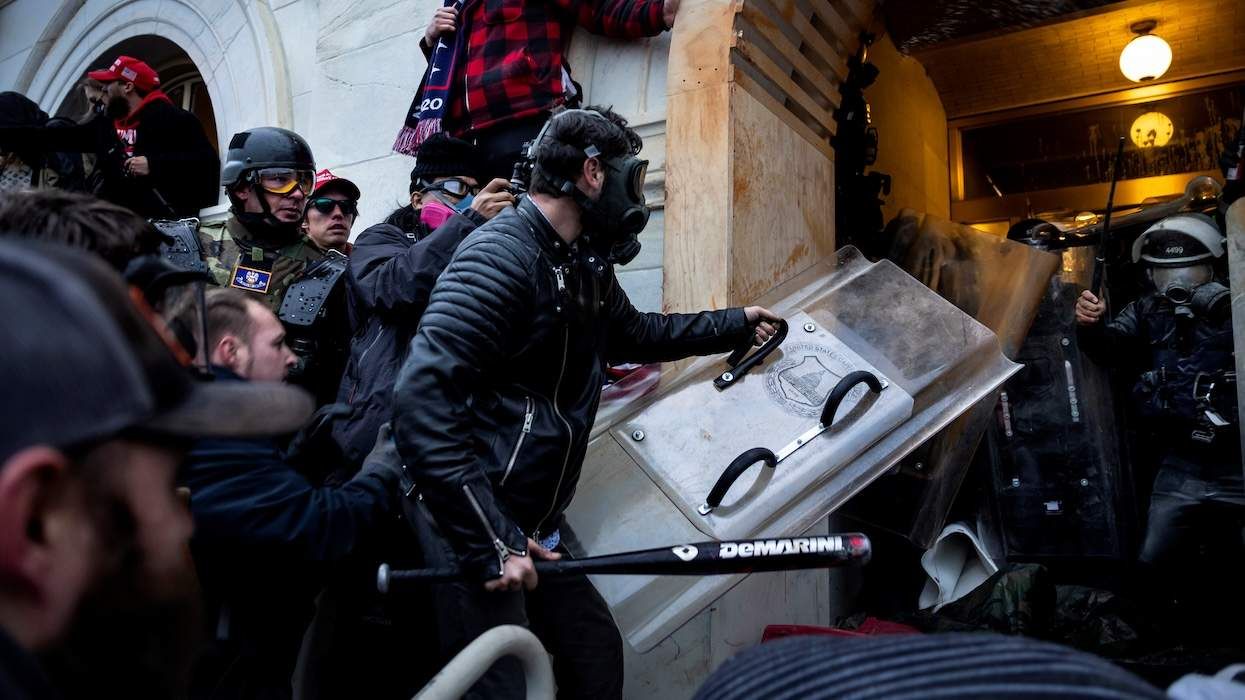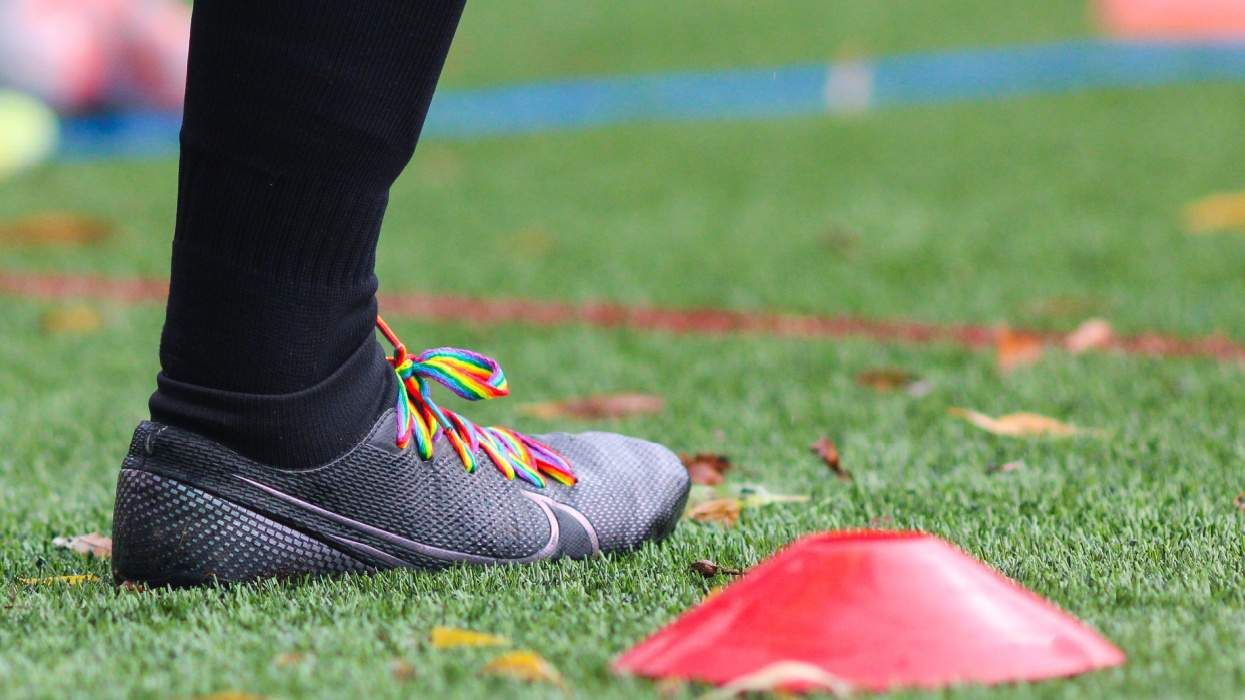A woman is on trial in Chester, England, charged with sexual assault for allegedly tricking a female classmate into thinking she was having sex with a man, reports the Liverpool Echo.
Gayle Newland, 25, of Willaston, England, is accused of inventing the persona of "Kye Fortune," a brain cancer sufferer, who would not allow his female partner to look at him because he had scars, according to another U.K. paper, The Guardian.
Prosecutors this week showed the jury in Chester Crown Court an "ultra cyberskin penis," which Newland allegedly used as part of her deception, The Guardian reports.
While not involving anyone who identifies as transgender, these allegations of deception do bear some resemblance to those used to justify the deadly attack of Brandon Teena, who was gang raped and brutally murdered in 1993 in Nebraska when his attackers discovered he was not assigned male at birth. That case was made into an award-winning film starring Hilary Swank, 1999's Boys Don't Cry. However unlike Teena, Newland does not generally present herself as male apart from this persona.
Newland's case could also be compared to the elaborate "catfish" of Manti Te'O, who was a star college football player at the time when it was revealed the person with whom he'd had a long relationship had created a fake identity online and was actually a male friend of his. The hoax, apparently at Te'O's expense, even went so far as to fake the death of the fake person.
In this case, Newland actually met her alleged victim in person. They spent at least 100 hours hanging out and having sex while the woman was blindfolded, but her suspicions were not aroused until after they became engaged, according to The Guardian's report.
The alleged victim wasn't suspicious when she saw Newland drive away after she had a sexual encounter with the person she knew as Kye Fortune: "If I could go back and scream at me, I would. It does look ridiculous on paper," the woman reportedly said.
"Every time I met up with Kye Fortune, I either had the mask on already, or he would wait outside the door and I would put it on. I was so desperate to be loved. It's pathetic, so desperate for love, so desperate," the woman reportedly told the court.
Newland reportedly claimed in court that the invented character was a fantasy she shared with her female sex partner, whom she said she met at a gay party. However, according to the accuser, the pair met online. Her lawyer described her as extremely gullible.
Describing their last sexual encounter, as reported by The Telegraph, the woman said: "When I was having sex I grabbed for the back of his head, and my hand got caught on something. It did not feel right.
"I was sat on the bed, he was standing up. Something in my mind said 'pull it (the blindfold) off, pull it off'. I just pulled it off. Gayle was just standing there ... I just couldn't believe it, I couldn't believe it."
On the witness stand, Newland admitted she created the persona of Kye Fortune when she was just a teen grappling with her sexuality."I had never spoken to any gay people and especially in those years you didn't see gay people on television. It was quite a negative thing. I just felt that speaking to people [in real life] I couldn't really be myself," she reportedly said.
According to The Guardian, after Newland was arrested, another woman came forward claiming she also was seduced online by Kye Fortune.
Live coverage of the trial can be seen here. According to an update from the Echo, however, the trial was halted this afternoon when the accuser had a panic attack. It will resume Friday morning.
EDITOR'S NOTE: A copyediting error inadvertently transposed words in an earlier version of this report, to make it appear as if the accusation that Gayle Newland "pretended to be a man" could be used to describe Brandon Teena, the Nebraska trans man who was gang-raped and murdered in 1993. Teena was assigned female at birth but lived and identified as male. The improper wording was caught immediately after the story was published early this morning, but due to technology issues, remained online for approximately 20 minutes before the copy was corrected, and another hour elapsed before social media versions of the story were changed to reflect the proper wording. This was an oversight in editing and in no way the fault of the writer of this report. The Advocate regrets the error and any confusion that resulted.















